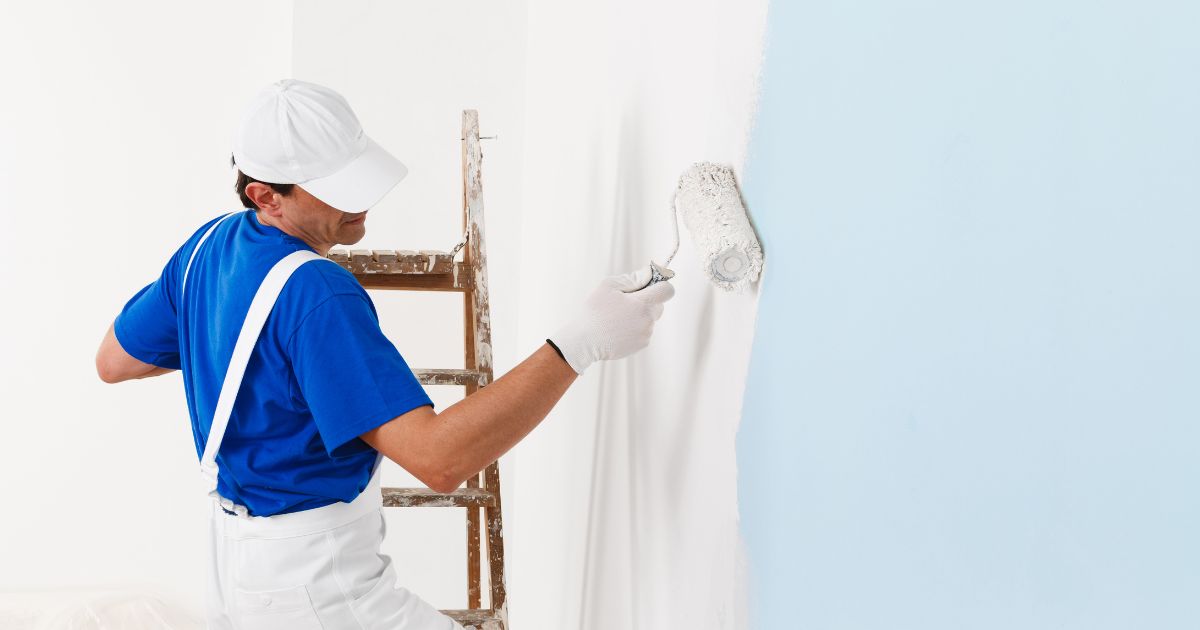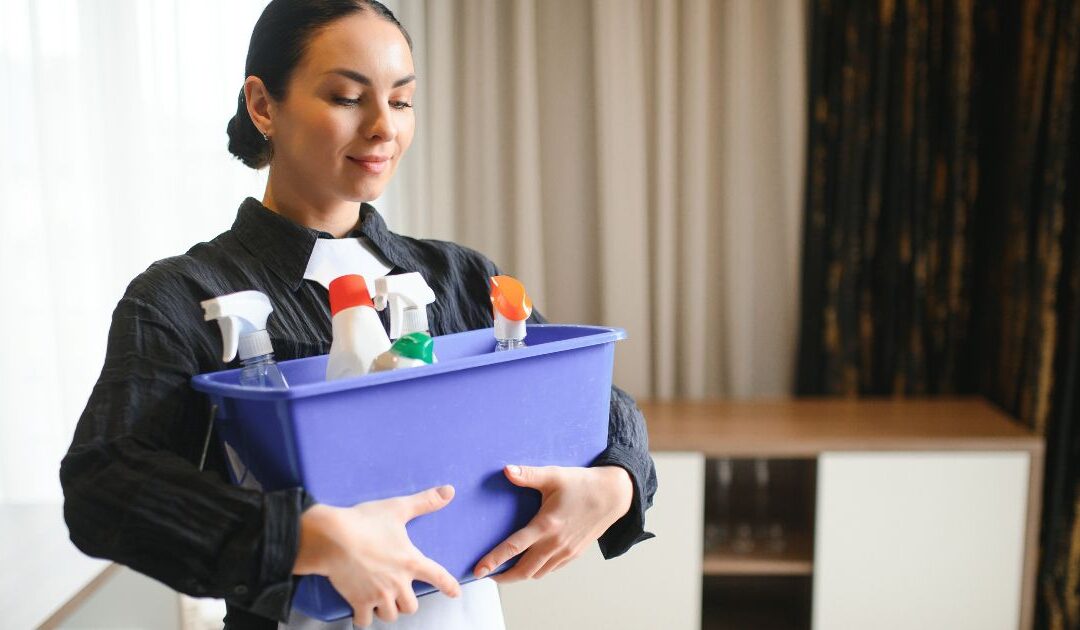What Is the LIME Painting Franchise Opportunity?
Company Overview and Industry
LIME Painting is a home-services franchise specializing in premium painting and surface restoration for luxury properties. Founded by Nick Lopez in 2013 (and franchising since 2018), the company carved out a niche as the first and only franchise focused exclusively on high-end residential and commercial painting services. LIME (an acronym for Love, Integrity, Mission, Excellence) targets the top 33% of homes and businesses in terms of value, positioning itself in the upscale segment of the $400+ billion home improvement industry. This luxury focus means LIME Painting faces virtually no like-for-like franchise competition in its niche, even as it operates within the broader painting and home restoration market.
Since starting franchising, LIME Painting has grown rapidly across the United States. From a single pilot location, it expanded to approximately 90+ franchise units in 21+ states by early 2024. This growth, along with accolades like being named a “Top Emerging Franchise” in 2023, signals strong interest in the concept. In essence, the LIME Painting opportunity lets entrepreneurs tap into the evergreen demand for property improvement—with a twist of serving affluent clients who expect top-notch quality and are willing to pay for it.
What Franchisees Get
LIME Painting franchisees offer a wide range of services beyond just house painting, making it more of a comprehensive restoration business. The core services include interior and exterior painting for homes and commercial buildings, but franchisees can also provide around 40 related services such as surface coatings, cabinet refinishing, epoxy floor treatments, drywall repair, carpentry, gutter replacement, brick/masonry sealing, and even lead-certified restoration work. This diversified menu of services creates multiple revenue streams – LIME notes it has 15 distinct revenue streams, with an average project ticket size roughly three times the industry average for painting jobs. In practical terms, LIME franchise owners can earn more per customer by upselling these additional services, with large luxury projects often averaging around $10,000+ per invoice.
To serve this high-end clientele, franchisees receive a robust support system and toolset. LIME Painting provides a proprietary tech platform called LIMEWare, which includes an integrated CRM (customer relationship management) system, a project management tool, and even proposal/pricing software handled by the corporate team. Notably, there is a National Call Center that fields customer inquiries and helps schedule estimates on behalf of franchisees. This means owners don’t miss leads and can present a professional, centralized customer service experience from day one.
Training and ongoing support are part of the package as well. New franchisees go through initial training (both at headquarters and in their territory) to learn the business model, sales process, and technical aspects of the services. LIME has continually invested in support, even adding roles like a Franchise Business Coach in 2023 to help owners optimize their performance. The franchise system fosters a community feel – franchisees can tap into peer advisory councils and get direct input from LIME’s leadership. All of this is aimed at helping franchise owners focus on managing the business (marketing, client relationships, and team coordination), rather than having to perform the manual painting work themselves. The typical customer base is mostly affluent homeowners, along with some high-end commercial clients (such as luxury offices, boutique businesses, or upscale property managers) who value quality workmanship and are willing to pay premium prices for a trusted brand’s services.
Startup Costs and Ongoing Fees
Getting a LIME Painting franchise off the ground requires a moderate initial investment common for service franchises. According to the franchise’s disclosures, the total initial investment ranges roughly from $125,000 up to $200,000+ to launch a single territory. This includes a $60,000 franchise fee, startup expenses for equipment and supplies, initial training fees, a vehicle (and vehicle wrap) for mobile operations, the first few months of insurance and working capital, and an initial marketing blitz in your territory. (Notably, LIME offers a 10% franchise fee discount for military veterans, which can save $6,000 off the upfront cost.) In some cases, if a franchisee secures a larger territory or chooses to have more operating capital, the investment can trend higher (some estimates go up to ~$277,000 on the high end), but many owners start nearer the lower end of the range.
Ongoing franchise fees with LIME Painting are in line with industry norms. The royalty is 7% of gross sales, meaning franchisees pay 7% of their revenue to the franchisor for continued support and brand use. In addition, LIME requires local marketing expenditures – currently at least $500 per month in local advertising – and a digital marketing fee of $1,500 per month for corporate-run online lead generation campaigns. (These funds go toward activities like SEO, pay-per-click ads, and social media to drive leads to the franchisee.) Importantly, LIME does not currently collect any national ad fund contribution from new owners, which is somewhat rare and means more of your ad dollars stay directed at your local market. Other ongoing costs include standard business expenses (insurance, software subscriptions for LIME’s tech tools, etc.), but there are no significant inventory costs since this is a service business. Overall, the cost structure is relatively asset-light: you don’t need a retail storefront or heavy equipment – many LIME franchises are home-based with a branded vehicle, keeping overhead low. Once the business is running, the main expenses scale with revenue: chiefly labor (painters or subcontractors) and materials (paint, coatings), which are factored into job pricing.
Earnings Potential: LIME Painting’s franchise model advertises attractive returns for those who execute it well. The company’s Item 19 financial representations indicate that mature franchises can achieve high sales figures. For example, in 2022 the average gross revenue for LIME Painting franchise locations was around $560,000 per unit, and LIME reports that its overall system average is even higher – roughly $0.85 million in annual revenue per franchised location. (This higher figure likely reflects the performance of established franchisees and the inclusion of LIME’s top affiliate-owned office.) At those revenue levels, franchisees can gross over half a million dollars a year in sales, which is notable for a home-service business. LIME also shared that assuming about 15% operating profit margins, that average volume would translate to roughly $125,000+ per year in owner earnings (EBITDA) for a franchise operator. In fact, LIME’s original Denver location (company-owned) generated $5.7 million in revenue in its first three years combined, with about $885,000 in net income over that period – illustrating the high-end market’s profit potential when scaled. Of course, individual results vary, and new franchisees would ramp up to those numbers over time, but these figures give a sense of the income opportunity if the business model is followed and local demand is strong.
How the Industry Itself Compares
When evaluating LIME Painting, it’s important to consider the painting services industry it operates in and compare it to the commercial cleaning industry (where our Assett Franchise competes). Both are part of the broader service sector and can be lucrative, but they differ in practical ways that affect stability, scalability, and day-to-day operations. Here we’ll break down some advantages of LIME’s high-end painting industry niche, and then contrast those with the benefits of the commercial cleaning business franchise model.
LIME Painting Industry Advantages
As a painting/home-improvement franchise, LIME Painting benefits from several positive industry factors:
- Booming Home Improvement Market: The demand for painting and remodeling is supported by a huge market – the U.S. home improvement/remodeling sector is worth over $400 billion annually. There’s consistent need for painting, repair, and upkeep of properties, especially as real estate owners look to maintain or increase their property value. Franchisees can tap into this large pie of spending. In particular, LIME’s focus on luxury homes means access to affluent clients who often have the budget to regularly invest in premium upkeep and upgrades.
- Premium Niche with Less Competition: Unlike general painting contractors that compete on thin margins, LIME positions itself in the luxury service segment. They claim to be virtually the only major franchise focused on the high-end painting market. This niche positioning can be an advantage – affluent customers are willing to pay for quality and reliability, and LIME franchisees don’t have to bid against dozens of low-cost painters for the same job. Moreover, by offering comprehensive services (around 40 different painting and restoration services), a LIME franchise can be a one-stop shop for high-end clients. This builds customer loyalty and increases revenue per client. (LIME reports its average job ticket is about $10k, significantly higher than a typical painting job, thanks to these bundled services.)
- High Revenue Potential per Job: Painting projects – especially for upscale properties – tend to be large, high-ticket jobs. Refinishing a luxury 5,000 sq. ft. home inside and out, for example, can easily run into five figures. This means a franchise can generate substantial revenue with a relatively small number of clients. LIME’s Item 19 data showed that in one year, its franchisees averaged only about 60–130 projects, yet still achieved over $600K in sales according to franchisechatter.com. In other words, each contract is lucrative. This dynamic is attractive for owners who prefer managing a few big projects versus a high volume of small transactions.
- Strong Corporate Support & Branding: Operating under the LIME Painting brand gives instant credibility in the high-end market. Wealthy homeowners may feel more comfortable trusting a known franchise with vetted processes, warranties, and a track record, rather than an unknown local painter. The franchisor’s support – like the national call center and marketing engine – also helps franchisees land clients that might have been hard to win as independent operators. The use of modern tech and a polished brand image sets LIME franchisees apart in an industry where many competitors are mom-and-pop outfits.
- Healthy Margins and Profits: While every business has costs, the painting service business can enjoy healthy gross margins because labor is often subcontracted per project and materials (paint) are a smaller portion of the job value. LIME’s model, targeting premium pricing, leaves room for a solid profit. The franchisor’s figures suggest owners can see ~15% profit margins after covering labor, paint, and fees. This is on par with, or better than, many service franchises. Additionally, because LIME franchisees don’t need a lease or heavy equipment, they avoid large fixed overhead costs – improving the potential return on investment over time.
Of course, it’s worth noting some challenges inherent to the painting/home improvement industry as well: seasonality can affect painting businesses (exterior painting slows in winter or rainy seasons, especially in colder climates), and revenue can be non-recurring – meaning you’re often chasing the next project once a job is completed. High-end clients may also be very demanding, expecting white-glove service and perfection, which means the quality of crews and project management must be top-notch. These factors make LIME Painting a potentially high-reward franchise, but one that requires diligent sales effort and operational attention to meet customer expectations on each big project.
Compared to Commercial Cleaning Industry
Now, let’s compare the above to the commercial cleaning industry, where Assett Franchise operates. Commercial cleaning (janitorial services for offices, schools, medical facilities, etc.) differs from painting in several key ways, and generally offers advantages in stability and scalability. Here’s how a commercial cleaning business franchise stacks up:
- Massive, Essential Market: The commercial cleaning sector exceeds $100 billion in U.S. annual revenue, making it one of the largest and most reliable segments in service franchising. Virtually every business or institution – from corporate office buildings and schools to hospitals and factories – requires cleaning services to operate. This creates recession-resistant demand: regardless of economic ups and downs, offices still need to be cleaned, trash emptied, and bathrooms sanitized. Cleaning is often considered an essential service (even more so post-pandemic), so a commercial cleaning franchise benefits from consistent, non-discretionary demand.
- Recurring Revenue Contracts: Unlike painting jobs which are typically one-off projects, commercial cleaning work is usually structured as recurring contracts. A cleaning franchise can secure long-term agreements to service clients on a daily, weekly, or monthly schedule. This means after you land a contract, it produces steady income month after month. Over time, owners can build a stable base of B2B clients that renew automatically, smoothing out cash flow. There’s no need to constantly find new customers to hit your revenue targets – the focus shifts to retaining clients and maybe upselling additional services (like floor waxing or window washing). This predictability of revenue is a huge plus for long-term stability and planning.
- Lower Cost of Entry & High Scalability: Commercial cleaning franchises often have lower startup costs than many other franchises (no expensive equipment or storefront required – just basic cleaning tools and perhaps a vehicle). While every franchise is different, generally the barriers to entry are low, yet the income potential is high. With the right contracts, it’s feasible to reach seven-figure annual revenues in commercial cleaning – and Assett Franchise’s own model is designed for $1M+ in recurring revenue, without needing millions in capital to get started. Additionally, scaling up typically means hiring more cleaning crews for additional client sites, but it doesn’t usually require heavy new investments in machinery or real estate. A single owner can oversee dozens of cleaning contracts through efficient scheduling and a lean team.
- Semi-Absentee Ownership Potential: The cleaning business is highly systems-driven, meaning a franchise owner can put managers and processes in place to handle day-to-day operations. Many commercial cleaning franchisees operate in a semi-absentee capacity – focusing mainly on client relationships and business growth, while delegating the nightly cleaning routes to trained staff. In fact, it’s possible to run a well-structured cleaning franchise with as little as 5-10 hours per week of oversight once contracts are in place and a trusted team is running smoothly. This is ideal for owners who want to keep their day job initially or manage the business at an executive level without getting involved in every cleaning task.
- No Seasonal Slumps: Cleaning is a year-round need. Offices and facilities require cleaning consistently, whether it’s summer or winter. This means no pronounced slow season – revenue can be more consistent month to month. By contrast, a painting franchise might see surges in spring/summer and lulls in bad weather. The steady cadence of cleaning work allows for easier forecasting and staffing. It also avoids the intense seasonal hiring that some painting or landscaping businesses face.
- Simpler Operations (No Specialized Skills/Equipment): Commercial cleaning is relatively straightforward to operate. The processes (dusting, mopping, trash removal, sanitizing) can be standardized and taught quickly, and the equipment needed is basic (cleaning solutions, mops, vacuums – no heavy machinery or complex tools in most cases). This simplicity means training employees is easier and the labor pool is larger – you don’t necessarily need licensed technicians or artisans as you might for high-end painting. Also, supplies are inexpensive and easy to source. Overall, the operational complexity is lower, making it well-suited for first-time entrepreneurs. You can focus on customer service and quality control, rather than managing technical craftspersons or dealing with expensive gear.
- Broad Customer Base with Non-Emotional Purchases: A cleaning franchise typically serves business clients (B2B) – such as property managers or facility directors – who make decisions based on reliability, cost, and consistency, not personal emotion. This can mean sales cycles are more rational and often result in long-term professional relationships. In contrast, residential painting involves homeowners (B2C) who may be swayed by personal taste, budget whims, or one-time needs. The B2B nature of commercial cleaning often leads to a more professional, repeat customer base, and a well-run operation can benefit from client referrals within industry networks (for example, a property manager who oversees multiple buildings could give you multiple contracts if you perform well). Additionally, commercial cleaning faces competition, but the market is so large and fragmented that a strong local franchise can capture significant share by simply being reliable and professional.
In summary, while LIME Painting’s industry offers high-dollar jobs and taps into luxury home spending, the commercial cleaning industry provides a more stable and scalable path with recurring income and fewer operational surprises. For an entrepreneur, it comes down to personal preference: Are you more excited by project-based home improvement work with big payoffs (and the hustle of continually landing those projects)? Or do you prefer a steadier contract-based model where you build a book of business that pays out predictably over time? Many find that the cleaning model delivers more long-term consistency, easier scalability, and resilience, especially during economic ups and downs – which is why we at Assett Franchise are biased toward commercial cleaning as an ideal venture for new franchise owners.
How the Assett Franchise Compares
If you’re weighing LIME Painting against other opportunities, it’s worth seeing how Assett Franchise stacks up. Assett is our commercial cleaning franchise offering, and it was built specifically to address many of the challenges that franchises in other industries (like painting, pest control, fitness, etc.) often face. Here’s a look at what makes Assett a simpler, potentially more profitable path for the right owner:
Simpler Systems, Bigger Potential
Assett Franchise is already operating in the stable commercial cleaning arena – meaning franchise owners benefit from the essential, recurring demand we described above. The business model was designed for entrepreneurs who want to work on the business, not in it. What does that mean? As an Assett owner, you’re not out cleaning offices every night; instead, you focus on building client relationships and managing a team, leveraging systems that handle the routine work. The systems-driven approach makes it easier to oversee operations and scale up fast when you land new contracts.
Despite having a lower cost of entry than many service franchises, Assett’s model has a high income ceiling. With our proven structure and B2B focus, a dedicated owner can grow a single territory to over $1 million in annual recurring revenue – all without the heavy infrastructure or complexity that some other franchises require. We provide a complete business playbook (no prior cleaning industry experience needed) to get you launched and acquiring customers quickly. From day one, you have a roadmap to follow, covering everything from sales and marketing strategies to service delivery and quality control. In short, Assett offers a simpler operational playbook but doesn’t cap your upside – it’s common-sense systems meets big business potential.
Automated Hiring = Time and Money Saved
One of the toughest parts of running any service business – whether it’s painting or cleaning or anything else – is hiring and retaining reliable staff. Assett Franchise tackles this head-on with an automated hiring system that is a game-changer for our owners. We’ve developed a technology-enabled recruitment and onboarding process that continually sources qualified cleaning staff, filters them, and helps get them trained up to our standards with minimal owner involvement. This means franchisees don’t have to spend 20–30 hours a week on HR tasks or pay for a full-time hiring manager – those functions are largely streamlined through our system. The result is not only a huge time savings, but also cost savings, and it translates into a consistently staffed operation.
What does this mean in practice? Say you land a new cleaning contract for a large office park. Instead of scrambling to find extra cleaners or worrying that you won’t have enough labor to fulfill the job, the Assett automated hiring pipeline has you covered. It’s continuously vetting potential employees so you can scale your workforce on-demand. This ensures you have a high-quality workforce at the ready as you grow, without the typical headaches of high turnover. In contrast, consider a painting franchise owner – they might spend a lot of time recruiting skilled painters or subcontractors for each big project, which can be a bottleneck. Assett’s approach frees you from that grind, letting you focus on growth and client service. Ultimately, by removing the biggest operational pain point (hiring), we help owners maintain service quality at scale and keep labor costs in check.
Personalized and Founder-Led
Another aspect that sets Assett Franchise apart is our culture and leadership style. We are a family-owned franchise system led by our founder, Matt Pencarinha, who remains directly involved in guiding franchisees according to bizbuysell.com. Unlike some franchisors that are owned by private equity firms or large corporate conglomerates, Assett takes a personalized, hands-on approach to franchise support. When you join Assett, you’re not just a number in a portfolio – you gain direct access to the founder and executive team for mentorship and advice. Matt started Assett with a mission to help first-time business owners succeed, and that mission drives everything we do.
This means our franchisees often remark that they feel like part of a close-knit community, rather than just an outpost of a corporation. We encourage open communication, gather feedback through advisory groups, and make sure each owner’s voice is heard as the brand grows. The model is community-focused, meaning we emphasize building relationships not only with customers but also within your local area (through reliable job creation and excellent service that makes a tangible difference for schools, medical facilities, and other community institutions we serve). Assett’s leadership is committed to continuous improvement and ethical business practices, reflecting our core values. For an owner, this translates to having a franchisor partner who is invested in your success for the long run – providing guidance, flexibility, and a shared sense of purpose. It’s a stark contrast to franchises where decisions are driven purely by quarterly earnings; at Assett, we measure success by our franchisees’ satisfaction and profitability, and by the positive impact their businesses have locally.
Final Thoughts
Both LIME Painting and Assett Franchise offer unique paths into business ownership, and each has its strengths for the right type of buyer. LIME Painting can be a compelling choice if you’re passionate about home improvement, enjoy project-based work, and want to serve an upscale clientele with a premium, creative service. It has strong branding, a growing presence, and a track record of high-revenue projects – for the owner-operator who loves the idea of transforming beautiful homes, LIME provides a tested framework.
However, if you’re someone who values long-term stability, scalability with low complexity, and predictable recurring revenue, we believe Assett Franchise provides more advantages. Commercial cleaning is a steady, essential service business where you can build a large, contract-backed income stream without the volatility of project work. Assett in particular is engineered for minimal risk and faster ROI – the systems and support are in place to get you cash-flow positive quickly and growing methodically. It’s a modern franchise model built for executive-style ownership, meaning you can achieve a healthy work-life balance (or even run it alongside another venture or job) as it matures.
Ultimately, the decision comes down to your goals and what you want your day-to-day to look like as an owner. LIME Painting will appeal to those who don’t mind a bit more operational coordination and who get satisfaction from visible, tangible project results (a beautifully painted property). Assett Franchise will appeal to those who want a “cleaner” alternative – a business that runs in the background generating recurring income with low drama and fewer variables. It’s about the lifestyle and financial profile you’re aiming for.
If you’re exploring franchise opportunities and want a model that can deliver long-term income, flexibility, and control — we’d love to show you how Assett Franchise can help you build a business that works for your life. Visit https://assettfranchise.com to connect with our team and learn more.




